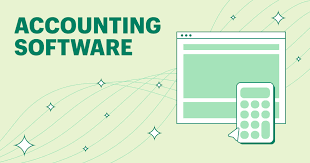The Importance of Accounting Software for Small Business
Running a small business comes with its own set of challenges, especially when it comes to managing finances. Accounting software can be a game-changer for small businesses, offering numerous benefits that can streamline financial processes and improve overall efficiency.
Key Benefits of Accounting Software:
- Automation: Accounting software automates repetitive tasks such as invoicing, payroll, and expense tracking, saving time and reducing the risk of manual errors.
- Financial Visibility: With real-time financial data at your fingertips, you can make informed decisions based on accurate insights into your business’s financial health.
- Budgeting and Forecasting: Accounting software allows you to create budgets, forecast cash flow, and track performance against financial goals, helping you plan for the future.
- Tax Compliance: Simplify tax preparation and ensure compliance with tax regulations by using accounting software that generates accurate reports and statements.
- Improved Reporting: Generate customised reports that provide valuable insights into your business’s performance, helping you identify trends and opportunities for growth.
Choosing the Right Accounting Software:
When selecting accounting software for your small business, consider factors such as ease of use, scalability, pricing, integrations with other tools, and customer support. Look for features that align with your business needs and goals to maximise the benefits of the software.
In Conclusion
Accounting software is an essential tool for small businesses looking to streamline financial processes, improve accuracy, and make informed decisions. By investing in the right accounting software solution, small businesses can gain a competitive edge in today’s fast-paced market environment.
Six Essential Tips for Selecting and Utilising Accounting Software in Your Small Business
- Choose user-friendly accounting software to streamline your financial tasks.
- Ensure the software integrates with your other business tools for seamless data flow.
- Regularly reconcile accounts to maintain accurate financial records.
- Utilize features like invoicing and expense tracking to stay organised.
- Back up your data frequently to prevent any loss of important information.
- Consider cloud-based accounting software for flexibility and easy access from anywhere.
Choose user-friendly accounting software to streamline your financial tasks.
Selecting user-friendly accounting software is a crucial step for small businesses aiming to enhance efficiency in managing their finances. By opting for intuitive and easy-to-navigate software, business owners can streamline their financial tasks, such as invoicing, expense tracking, and reporting. User-friendly accounting software not only saves time but also reduces the likelihood of errors, enabling small businesses to focus on growth and strategic decision-making rather than getting bogged down by complex financial processes.
Ensure the software integrates with your other business tools for seamless data flow.
It is crucial for small businesses to ensure that the accounting software they choose integrates seamlessly with their other business tools. By selecting software that can easily connect and share data with existing systems such as CRM platforms, inventory management tools, or payment processors, businesses can streamline their operations and improve efficiency. This integration allows for a smooth flow of data across different functions, enabling better coordination and decision-making within the organisation.
Regularly reconcile accounts to maintain accurate financial records.
Regularly reconciling accounts is a crucial practice for small businesses using accounting software to uphold precise financial records. By comparing transactions in the software with bank statements and other financial documents, businesses can identify discrepancies, errors, or fraudulent activities promptly. This process ensures that the financial data remains accurate and up-to-date, providing a clear picture of the company’s financial health. Regular reconciliation also enhances transparency and accountability within the business, enabling informed decision-making based on reliable financial information.
Utilize features like invoicing and expense tracking to stay organised.
To effectively manage finances in a small business, it is crucial to utilise key features offered by accounting software, such as invoicing and expense tracking. By leveraging these tools, businesses can stay organised and maintain a clear overview of their financial transactions. Invoicing features streamline the process of sending out invoices to clients and tracking payments, ensuring timely payments and improved cash flow management. Expense tracking capabilities allow businesses to monitor and categorise expenses accurately, providing insights into where money is being spent and enabling better budgeting decisions. By maximising the use of these features, small businesses can enhance their financial organisation and efficiency.
Back up your data frequently to prevent any loss of important information.
It is crucial for small businesses using accounting software to regularly back up their data to prevent the risk of losing valuable information. By implementing a robust data backup system, businesses can safeguard their financial records, invoices, and other critical data from potential disasters such as system crashes or cyberattacks. Regularly backing up data ensures that important information remains secure and accessible, providing peace of mind and continuity in business operations.
Consider cloud-based accounting software for flexibility and easy access from anywhere.
When choosing accounting software for your small business, it is advisable to consider opting for cloud-based solutions. Cloud-based accounting software offers flexibility and easy access from any location with an internet connection. This means you can manage your finances on-the-go, collaborate with team members remotely, and access real-time financial data whenever and wherever you need it. Additionally, cloud-based accounting software often provides automatic updates and secure data storage, ensuring that your financial information is always up-to-date and protected. By embracing cloud technology, small businesses can enjoy enhanced flexibility and efficiency in their financial management processes.

